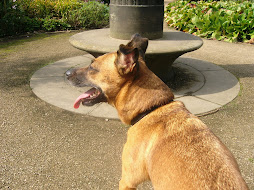1. Is it relevant to the job applied for?
If your personal objective is very specific to a particular industry and sector, then think about it's relevance to the job you are applying for. For example is your objective is to find employment within the airline sector, how will it be received if you leave it on your resume when applying for a job in computing? They may feel that you are unlikely to stay with the company if a better offer comes along from an airline company a few months or a few years later.
2. Does your objective communicate something about your character
"I am an enthusiastic career driven individual with a strong team emphasis who excels in embracing tough new challenges and is able to motivate others towards achieving a common purpose."
This example objective lays out its intentions and provides an employer with insight into the individual's work ethic which could be very appealing to them. Think about using your own personal objective to communicate some important details about your character that would be beneficial to an employer.
3. Does your objective have a clear meaning
Sometimes personal objectives can make sense to the person writing it but no sense at all to the reader. Ensure that if you intend to use a personal objective you ask a friend to read it to check they understand what you are trying to communicate.
4. Does your objective put you in a positive light?
Some personal objectives can be a positive turn off to prospective employers, even though they may be about something you are passionate about. I once read a personal objective in a resume that talked about how it had been the person's ambition to keep sheep and learn about caring for animals. This resume was being sent in for a computing job! Statements like this in the wrong context can leave an employer feeling that you are strange or eccentric, even if you are passionate about that pastime.
If you do decide to put your objective on your resume then consider using an approach to objective setting called SMART. This is used in a number of industries.
1. Specific - Keep your objective to the point and don't waffle.
2. Measurable - Is your objective something that can be easily measured. I.e using the term hardworking in your objective, can be measured by your output at work.
3. Achievable - Is your objective something that you can achieve even if it is a challenge
4. Realistic - Is your objective realistic and within the boundaries of possibility
5. Time bound - Is there a timescale you can put on achieving your objective?
Summary
As discussed previously the decision to place your objective on your resume rests with you, but this article has attempted to provide some thought provoking questions to aid you in the process.

